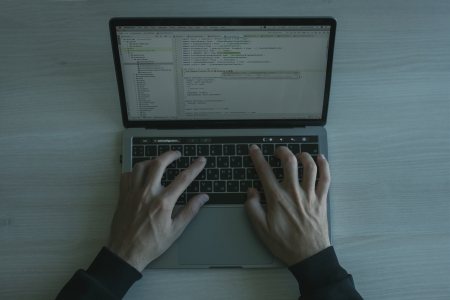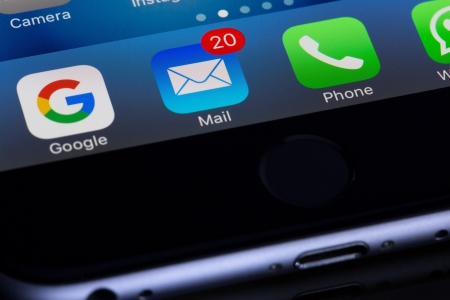The Public Relations Blog
We frequently blog about the latest public relations corporation communications, and marketing topics, tips, and trends. Our blog is one of the 100 Best Public Relations Blogs, according to FeedSpot. Please help yourself to our insights and be sure to subscribe to our weekly blog notifications.
Protect your brand's reputation with strategic PR during cyber incidents. Learn proactive communication steps and rebuild trust effectively.
Read More
Topics: public relations, cybersecurity
Determine whether an email is real or a scam by staying vigilant, analyzing, and trusting your instincts.
In today’s digital workspace, it’s more important than ever to safeguard your organization’s private information. Hackers are continuously evolving cybersecurity threats, trying to obtain your company’s sensitive information in any way they can.
Read More
Topics: cybersecurity
Protect your company’s data from these seven different types of phishing campaigns online.
When it comes to cybersecurity, companies and corporate communications professionals need to know about the different types of phishing campaigns that might compromise your company's data.
Some of these phishing campaigns might be new to you. You may have experienced them personally or professionally. Either way, education is the first step to protecting you, your company, your employees, your organization’s brand, and your reputation. The second step is active and ongoing cybersecurity communication. In the modern era, every public relations and corporate communication practitioner has the responsibility of leading the charge for cybersecurity communication.
Read More
Topics: crisis communications, cybersecurity
Business-to-consumer cybersecurity companies can use national media coverage to expand their consumer base and share best practices.
With the proliferation of technology and growing digitalization of our lives, cybersecurity is no longer a niche subject but a mainstream concern. For business-to-consumer (B2C) cybersecurity companies, getting national media coverage is not just about brand promotion; it's about contributing their knowledge to a vital public discourse.
Read More
Topics: earned media, news media, cybersecurity
Here are 8 best practices to help you overcome a cyberattack.
Cyber incidents occur frequently. We are a trusted public relations advisor to cybersecurity companies and organizations seeking helpful expert guidance on corporate communication before, during, and after a cyber attack.
We’ve already discussed how to communicate before and during a cyberattack. However, these are the eight best practices to help you communicate internally and externally after a cyberattack.
Read More
Topics: crisis communications, cybersecurity
Here are 8 tips to better manage internal and external communications during a cyberattack.
Every 39 seconds, your company is vulnerable to a cyberattack. It’s important to plan and communicate before a cyberattack occurs. However, if one does occur, you need to move quickly.
Read More
Topics: crisis communications, cybersecurity
There are 7 ways CISOs can prepare their company for a cyber incident.
In a 2022 study, approximately 88% of Chief Information Security Officers (CISOs) surveyed reported to have experienced a cyber incident within the year. Unfortunately, in this day and age, it's not a matter of if, but a matter of when your organization will face a cyberattack.
It’s important to prepare for a cyberattack well in advance by communicating with your critical audiences: board, leadership, management, employees, customers, industry, regulatory agencies, government, and other stakeholders.
Read More
Topics: cybersecurity
Watch out for faulty domains and untrusted links in this targeted cyberattack.
It’s important to practice cybersecurity best practices to keep your company’s information safe on the web. We are a trusted public relations advisor to cybersecurity companies and organizations seeking helpful expert guidance on corporate communication before, during, and after a cyber attack.
We’ve already covered many cybersecurity threats, such as spear-phishing, human error, vishing, internet downloads, computer theft, and more. There's a new cybersecurity breach tactic, however, that you need to be aware of: web spoofing.
Read More
Topics: cybersecurity
Maintaining these efficient practices will help you avoid a potential crisis.
In this day and age, almost everything is online or completed on an electronic device. More workers are working remote or hybrid jobs, which makes online safety important as ever. Yet, many are unaware of cybersecurity safety practices.
Read More
Topics: PR tips, cybersecurity
Spear-phishing is an extremely dangerous and targeted form of phishing. It differs from phishing because a seemingly trusted source targets a specific person to compel them to reveal confidential information.
Read More
Topics: cybersecurity












Comment on This Article